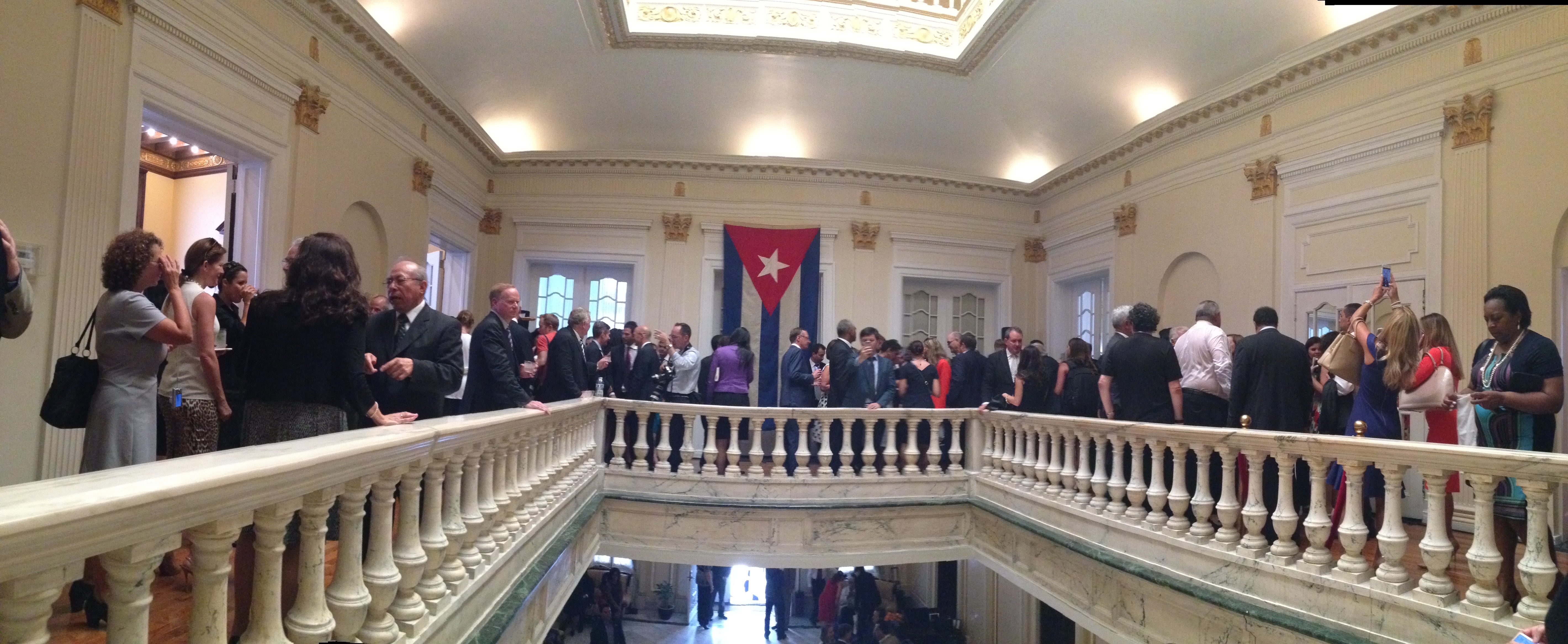
The ‘Power Shift’ on the Cuba policy debate
WASHINGTON, D.C. – From today to the inauguration of the next U.S. president, two themes will likely shape our analysis of U.S.-Cuba relations over the next 67 weeks.
The first is what we call the “Power Shift,” the ongoing transformation in “who calls the shots” in the Cuba policy debate; the second is the growing, and increasingly broad-based interest in creating “facts on the ground” that will make the Obama reforms that started on December 17, 2014, irreversible.
Together, these themes explain why there’s more political space to think differently about Cuba and the conversation around the policy.
Think back to last summer. The Treasury Department made news when it released a nine-page report by its Office of Inspector General (OIG) which concluded that Jay-Z and Beyoncé had traveled to Cuba legally, had not violated U.S. sanctions, and that OFAC’s decision not to start a formal investigation of their visit, as demanded by Reps. Ros-Lehtinen and Diaz-Balart in 2013, “was reasonable.”
Sure, it was fun to read a U.S. government report that began with the words “This memorandum represents the results of our review of a trip to Cuba by the couple Shawn Carter (whose stage name is Jay-Z) and Knowles-Carter (Beyoncé) to determine whether the trip violated U.S. sanctions.”
But the facts that this ginned-up controversy lasted over a year, wasted taxpayer money, and trivialized a big issue (Cuba as the one destination for U.S. travelers where it is a crime to be a tourist) were vivid examples of where hardliner dominance over Cuba policy had taken us.
Developments just this week illustrate how much the entire conversation has changed.
On Wednesday, the Washington Post reported, in its “Power Moves” column, that former Senator Olympia Snowe (ME) and former Homeland Security Secretary Janet Napolitano joined The Cuba Consortium, a bipartisan group formed to advise businesses and others about the normalization process.
Good story placed in an important, pro-embargo paper, and no backlash.
Arkansas Governor Asa Hutchinson returned from his trip to Cuba saying “he looks forward to the possibilities of trading with Cuba,” according to KARK-TV news.
Former Bush Administration Homeland Security official, who took special pride in making Cuba sanctions bite harder, pirouettes on the policy, no suffers no pushback.
Meanwhile, U.S. Representative Rick Crawford, who represents the First Congressional District of Arkansas, introduced legislation cosponsored by the Chairman of the House Agriculture Committee, Michael Conaway, and Rep. Ted Poe, both Texas Republicans, to remove restrictions in U.S. law that impede the sale of agriculture products to Cuba.
The Miami Herald, which editorialized again this week against lifting the embargo, also covered a big new positive development in the Cuban reality; namely, progress in getting more Cubans access to the Internet in this excellent article “Cuba: A nation gets connected.”
Perhaps, most remarkable of all, Commerce Secretary Penny Pritzker visits Cuba, delivers a message to Cuban officials “to make sure that you understand how our regulations work, because I think there’s business opportunity in that,” and adds “What we’re trying to do is be as open as we can until the blockade is lifted.”
Blockade? As the New York Times helpfully explained, blockade is the word that Cubans use to refer to the U.S. embargo.
In covering the trip, neither the New York Times nor the Washington Post quoted any blowback from the entrenched sources of pro-embargo political support. None.
They could have quoted – or called – Senator Bob Menendez (NJ) who delivered a stinging indictment of President Obama’s Cuba policy in a floor speech on Wednesday.
Although it might seem a little snarky, another sign of the Power Shift can be found in the meager coverage Menendez’s speech attracted. He could barely be heard.
On Google this morning (Friday Oct. 9), we found 234 articles on Secretary Pritzker’s trip. A similar search found the Senator’s speech was covered by El Nuevo Herald, the Voice of America, Texas Tribune, PJ Media, and three news distribution services (including “noodls,” the self-described “killer app” for the media relations industry).
This is not to say the battle’s won; the Obama policy rules! No. There is still much work to be done.
As Nick Miroff wrote in the Washington Post after Pritzker’s trip, there are economic impediments on the Cuban side — along with serious human rights issues and related concerns on both sides — that are slowing the creation of “facts on the ground.” These delays mean fewer incentives for U.S. corporations and political figures in the U.S. Congress to speed the ultimate removal of the embargo.
Of course, given the inability of the House to elect a presiding officer, it’s easy to understand why repealing the embargo will take more time.
But, our point is this. At last, we’re talking about big things rather than small ball; we’re directly engaging with Cuba’s government on matters ranging from trade to human rights, and not debasing ourselves with debates over Rihanna showing her backside in Vanity Fair or whether the Rolling Stones should ask Cubans when they tour next March, “Can’t you hear me knocking?”
(From Cuba Central)


